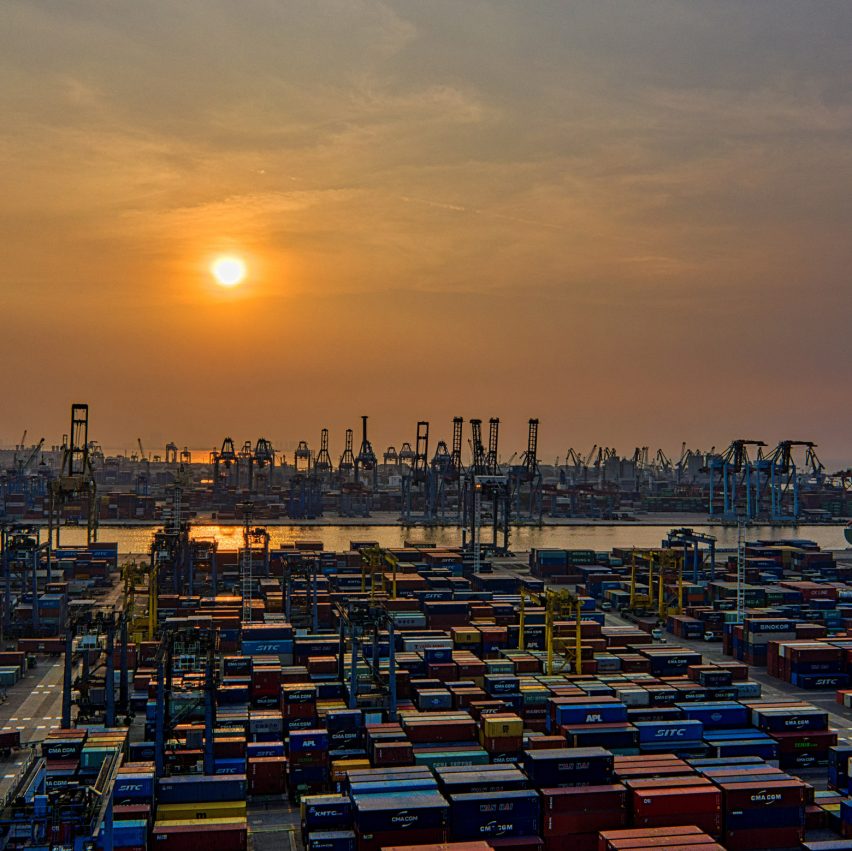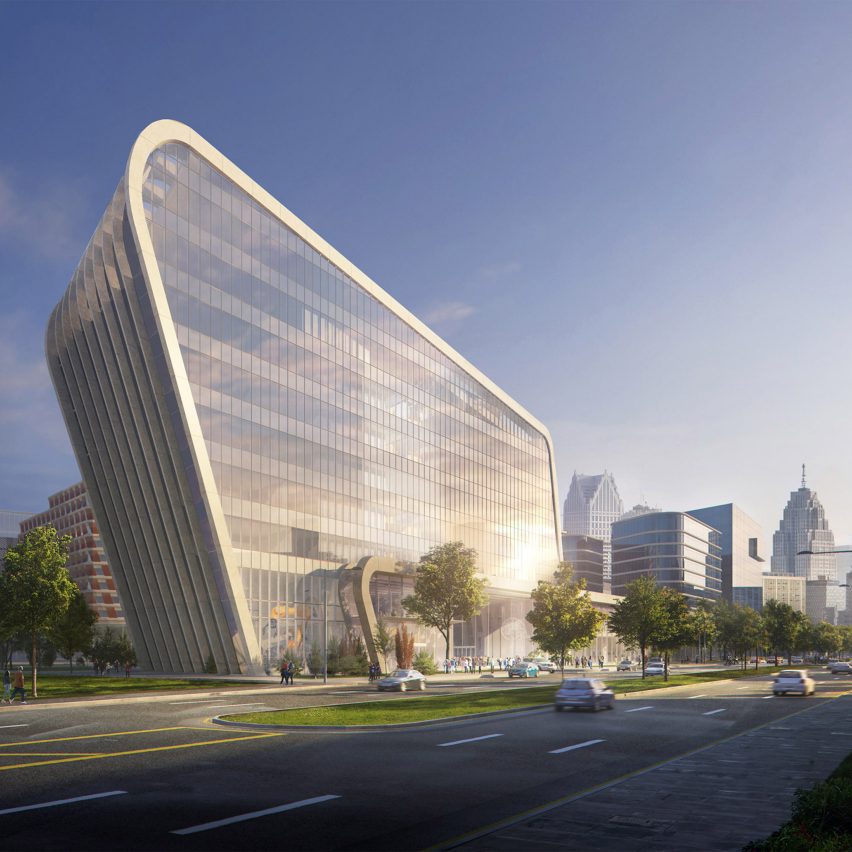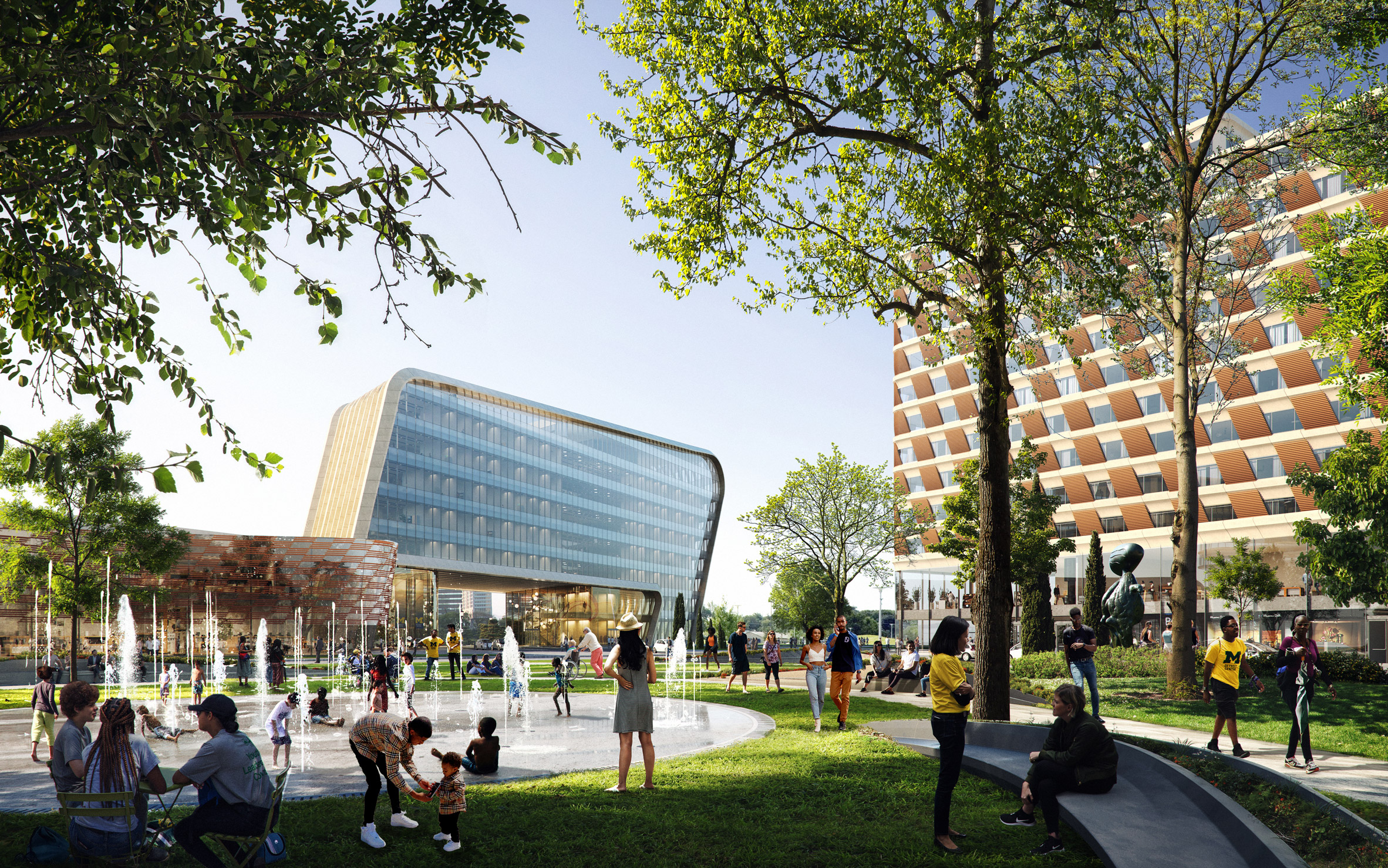
Designers are preparing for significant disruption to their businesses and supply chains as coronavirus spreads around the world.
Industry sectors including lighting, fashion, sportswear and automotive have been hit by the shutdown of factories in China, with brands struggling to get hold of stock and components.
UK designer lighting brand Plumen, which manufactures all its lightbulbs in China, said it faced delays of six to eight weeks in getting hold of stock.
"The immediate result for Plumen is that we are now out of stock of our two best selling products, the 001 LED and the 002 LED," said Plumen co-founder and MD Michael-George Hemus. "This obviously affects revenues over the next two months."
Architecture projects in Europe could be delayed
Factories in China are now reopening following an extended shutdown caused first by Chinese New Year and then by coronavirus.
"Like almost all businesses in China, the coronavirus outbreak resulted in an extended closure of the Stellar Works production facility following the Lunar New Year holiday," said Chinese furniture brand Stellar Works.
"However, the Stellar Works factory has now reopened, and we aim to be at 80-90 per cent productivity by the middle of March," the brand said. "We are currently reviewing all orders and are updating customers on revised delivery dates where necessary. We are working hard to return to optimal production as soon as possible."
But elsewhere, factory employees have not returned to work, particularly those affected by the lockdown in Wuhan, which the virus was first detected in December last year. Many plants are still not working at full capacity.
With other brands facing similar problems, Hemus predicted that many architecture and interior fit-out projects in Europe would be delayed.
"We are forecasting an impact on trade sales over the coming months," he said. "The supply chain for a lot of commercial projects will have been hit, meaning that projects will be delayed."
"Everything is much slower"
An architecture firm that has several projects in China said that projects in the country had come to a standstill.
"Four major jobs in China are on pause," said the firm. "Cash flow is severely impacted. Even if you have a contract, people are just not paying on time."
A New York fashion brand said it was struggling to receive materials it has ordered from suppliers in Asia.
"With the virus, everything is much slower," the brand said, with factories unable to confirm delivery dates for fabrics it needs for its collections. "We just don't have a definitive answer."
New cases of the Covid-19 strain of the virus are declining in China, but the impact of the virus is spreading elsewhere. The quarantine of northern Italy was extended to the entire country last night and other countries including the UK and the USA anticipating significant outbreaks.
The outbreak has already had a significant impact on Europe's events industry, with Salone del Mobile, Light + Building, the Geneva Motor Show and MIPIM among dozens of fairs postponed or cancelled.
Aviation and hospitality sectors hit
Speaking to Dezeen yesterday, trend forecaster Li Edelkoort predicted the virus would cause "a global recession of a magnitude that has not been experienced before".
"On a practical level most of our clients are preparing for a worsening situation and supply problems," said Luke Pearson and Tom Lloyd of London industrial designers PearsonLloyd.
"We have clients who are witnessing decreased revenue streams especially in the aviation and hospitality industry and these will inevitably impact how they commission design."
Risks of this happening again "quite high"
A designer who consults for sportswear and automotive brands said the virus was having a "dramatic impact" on companies in Europe that rely on supplies from China.
"The sportswear industry cannot get shoes [out of China]," the designer said. "But for other industries, it's sometimes just tiny little components, materials, chemicals and glues that are not arriving".
In many cases, China is the only producer of certain materials and components, the designer said. Without them, production lines outside China will grind to a halt.
"This may lead to like a complete readjustment of global sourcing," the designer added. "Because the risks of this happening again are actually quite high."
Most large brands operate "just in time" supply chains, with materials and components arriving at factories as they are needed. Coronavirus has turned this way of operating into a liability, the designer said.
"The whole idea to have everything just in time might now represent a huge liability actually," said the designer. "So the warehouse might come back, buffer stock might come back as a management principle."
Coronavirus could lead to "localised supply chains"
Jonas Petterson, CEO of Swedish design studio Form Us With Love, said the virus could lead to more localised supply chains.
"The virus is making us consider how supply chains work, how global business can be decentralized and less dependant on central hubs," he said. "Today it's actually feasible to produce locally with new means of production."
The managing director of a UK high-street fashion brand that relies on Chinese factories told Dezeen that production is finally getting back to normal.
"Factories that should have opened up and gone into production have been delayed," said the MD. "There is a knock-on effect and product is taking longer to come out."
"Massive drop in footfall"
To make up for lost time the brand has been air-freighting garments to the UK rather than shipping them, only to find that retail sales in the UK have gone into steep decline as customers avoid going out shopping.
"We've seen a massive drop in footfall and demand," the MD said, adding that sales were down 15 per cent last week and could drop 30 per cent as fears of the virus rise. Luxury brands would be particularly hard hit, the business leader said, due to the impact of the virus on key markets including China, Hong Kong and Singapore.
"A month ago I was worried about getting stock," the MD said. "Now I'm worried about selling it."
The photograph is by Tom Fisk from Pexels.
The post Designers "preparing for a worsening situation and supply problems" due to coronavirus appeared first on Dezeen.
from Dezeen https://ift.tt/2TFnCgD














